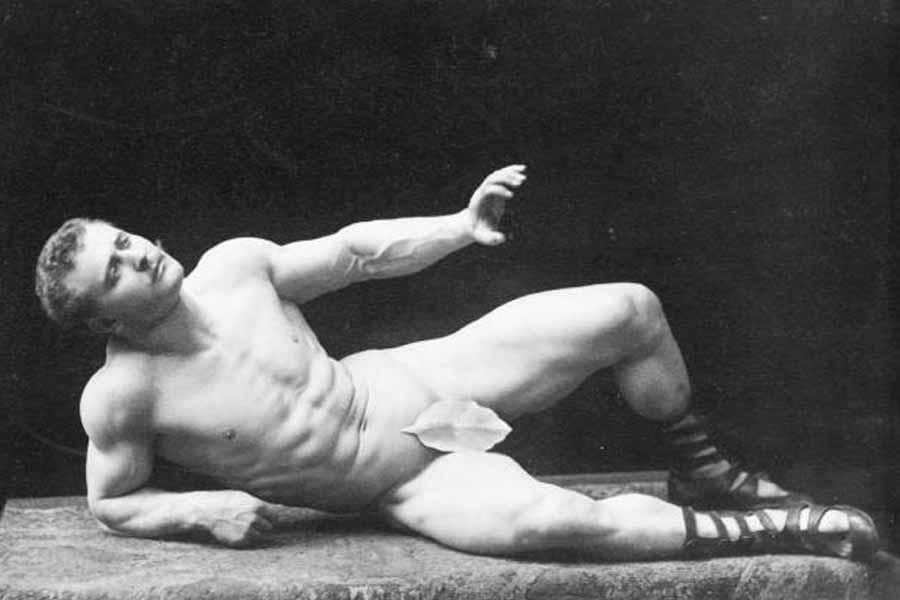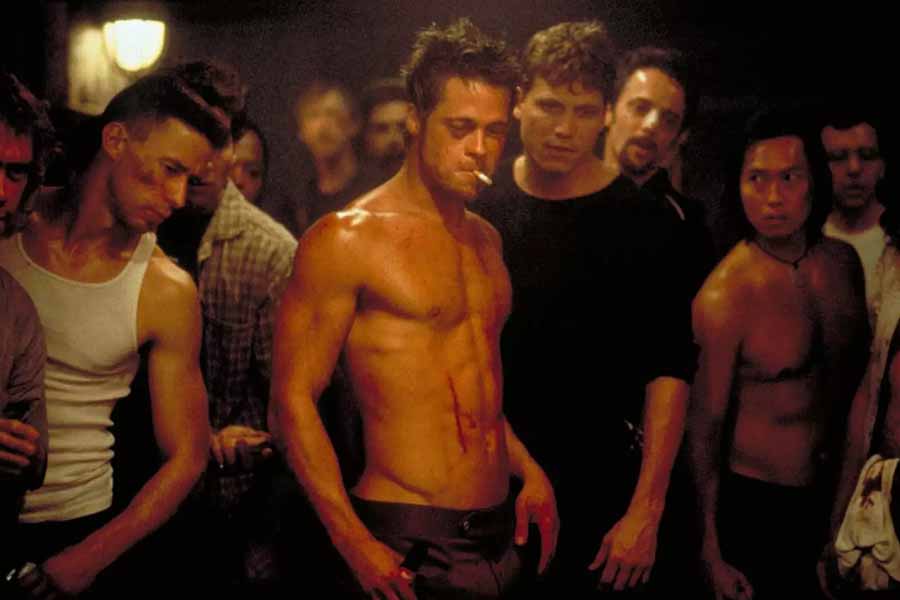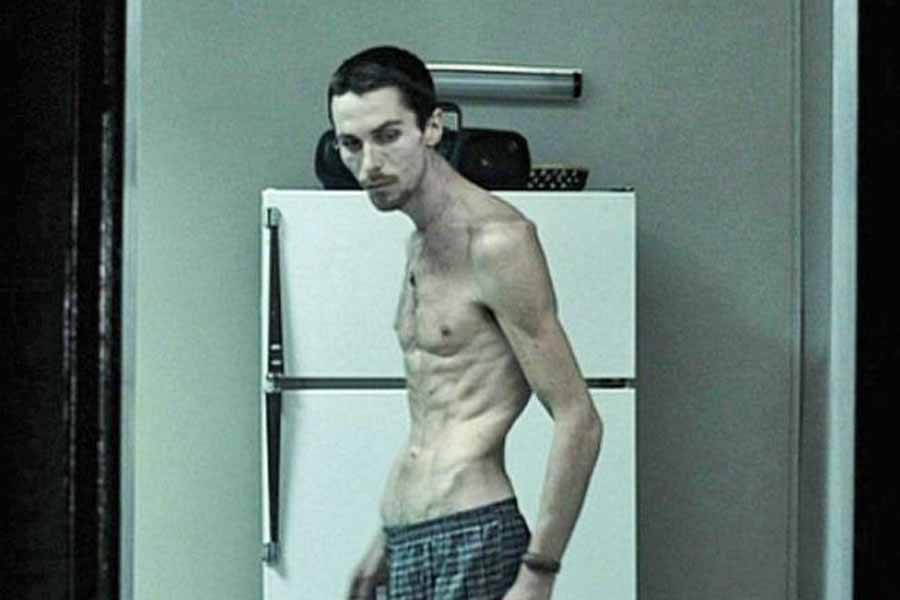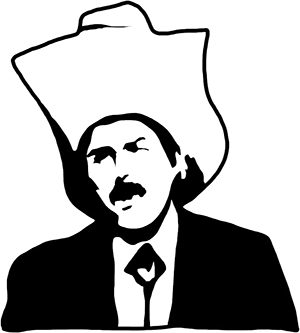too big and bulky
If you start lifting weights, you’ll gain waaaayyyyy too much muscle. Your big and bulky body parts will interfere with every aspect of your life.
You’ll get an itch in the middle of your back you won’t be able to scratch. You’ll be reminded of Sisyphus. You’ll experience existential angst. You’ll start reading Kierkegaard. Your emotional quotient will tank. Your friends will abandon you. You’ll sink into an inescapable depression. You won’t be able to meet new friends because your massive muscles will make it impossible for you to fit through your front door. You’ll die alone. The coroner will cite starvation as the reason for your eternal slumber, but we all know sadness deserves the spotlight.
Don’t worry, Rancor (your cat) will be fine. He will eat your dead body and create a super successful Instagram account with your iPhone. The caption to his first post, which will one day be enshrined in the Smithsonian National Air and Space Museum, will read: “selfie with a stiff.”
You’re betting off skipping the weights. Do banded exercises or calisthenics. Use machines. Lifting weights is overkill… or so the story goes.
Unfortunately, being afraid of lifting weights because you don’t want to become a bodybuilder is like being afraid of making a grilled cheese sandwich because you don’t want to become a Michelin star sushi chef.
And you better start Ubering everywhere. You might become a drag racer if you keep commuting to work.
The only thing worse than these jokes is being afraid of lifting weights because you don’t wanna get “too big.” Lifting weights won’t turn you into a Titan incapable of rotational movement. Quite the opposite. Lifting weights and getting stronger is essential, even if you want a minimally muscular Brad Pitt Fight Club body.
If you want to know why and you’re inclined to take advice from someone that’s never seen any of The Fast and the Furious movies, let’s break things down starting with:
Most people you consider to be too big and bulky aren’t bulbous beasts because they lift weights.
They’re capable of clogging the Suez Canal because they take steroids or some other non-commercial performance-enhancing substance (PES). The obvious example is professional bodybuilders. You can’t become Ronnie Coleman without ‘roids. This is obvious. (I hope.)
What’s less obvious is the unrealistic-yet-somehow-realistic layer below Ronnie the ‘Roider. In other words, most Gymshark-sponsored athletes.
We have a distorted perception of what’s attainable “naturally” because PES use is hidden harder than Anne Frank despite being at a heroin high. You’d expect “natural” bodybuilders to be natural, but most aren’t. You wouldn’t expect an eighteen-year-old TikToker to top his spaghetti with SARMesean cheese, but Bryce Hall exists.
In general, social media and celebrity skew synthetic. And for good reason. No one wants Captain America to have the physique of an IT intern. Film studios can’t waste years waiting for actors to look the part. There are millions of dollars at stake. You don’t need to be Banksy to stencil “steroids” atop this scenario.
Social media is similar. Want to stand out? The benchmark is set by the best, and the best are on sauce (the kind you can’t order at Olive Garden). There are no drug tests. Staying natural is a disadvantage. (I would know.)
If you want to stay sane, you shouldn’t entertain the majority of world-class physiques you see as obtainable feats, just like you shouldn’t expect your Toyota Corolla to hit Formula One speeds.
Of course, not every influencer and celebrity is on sauce, but to the untrained eye, deciphering whether someone is natty or not is tough, and why guys like Greg Doucette and Philion lean on the topic like the Kardashians lean on plastic surgery.
Instead of becoming a creepy internet sleuth and trying to decode who is natty or not, you’re better off using old-time bodybuilders and physical culturalists to ground your expectations. I’m talking about guys like Eugen Sandow, George Hackenschmidt, and Otto Arco.

Eugen Sandow was a bodybuilder and strongman in the late 1800s. He tried to build his body according to proportions found in Greek and Roman sculpture. He’s considered the father of modern bodybuilding.
These guys existed before steroids were in circulation (and they didn’t live in Winden). You can bet they were natty, which means they’re a more realistic representation of what you can expect to achieve after a lifetime of lifting.
Yeah.
Lifetime.
Still afraid of getting too big?
You shouldn’t be.
You might argue that these old-timers don’t represent what’s possible naturally because they lived before hair dryers existed.
They didn’t have access to the same knowledge and technology we do now. There’s no way they reached their genetic potential. They probably wasted many a day massaging their anuses with fresh-cut jalapenos in the name of muscle growth because they associated “the burn” with total body hypertrophy. If these old-timers would have lived in our era, they would have been much bigger, and not just because their obvious body dysmorphia would have driven them to take PES. They’d be bigger even if they stayed natty.
Maybe.
Probably not.
Here’s why:
First, the information age doesn’t make you immune to wasting time doing stuff that doesn’t work.
Whitney Cummings is a famous comedian and Hollywood personality. She has more money than she could ever need. She has infinite resources at her disposal. She said she uses e-stim (as recently as 2020) to (try to) build her butt. Dear Whitney Cummings: Do yourself a favor. Find Ben Bruno. Give him your money. All of your money. Then give me some money.
Second, the stuff that works best now, like lifting heavy iron things and playing on gymnastics rings, was around back then… and it was, like, the only stuff around.
There weren’t as many gimmicks, which couldn’t have been a bad thing. Vibrating belt machines weren’t popular until after Sandow bent pressed his way to a physique most modern men don’t have the patience to build. If Sandow was born in a different era, he might have spent less time pressing heavy things overhead and more time trying to jiggle and vibrate his fat into oblivion.
Third, these guys dedicated an above-average amount of time and energy to building their bodies.
Sandow was in the circus. Hackenschmidt and Arco were wrestlers. They weren’t casual lifters. If you’re spending an hour in the gym three or four days per week, you’re super casual. You’re the culinary equivalent of sprinkling a packet of Old El Paso taco seasoning on top of browned ground meat.
Any disadvantage these guys had was probably offset by their work ethic. And even if it wasn’t, there’s a good chance they were genetically advantaged. Back then, you didn’t “pursue your passion.” Interest followed competence. In other words, you played basketball and discovered you were good at basketball, which made you more interested in basketball. Or you tried solving some equations and discovered you were bad at math, which made you less interested in math.
Before your brainwashed peanut starts leaking growth mindset grease, consider the era. In the early 1900s, diarrhea was one of the leading causes of death. The American flag only had 45 stars. Heroin was available over-the-counter and was said to “clear the complexion, give buoyancy to the mind, and regulate the stomach and bowel.”
What their superior genes were able to achieve with (potentially) sub-par strategies is probably similar to what someone with sub-par genes can achieve with superior strategies, which brings us full circle:
You’re better off using old-timers to ground your expectations of what can be obtained naturally, as opposed to any modern-day synthetic simp.
You won’t Go Go Gadget Grotesque once you start lifting weights. On the contrary, if you don’t start lifting weights, you’ll probably never build a body you’re happy with.
Ready for some tough love?
You don’t have as much muscle as you think you do, especially if you’ve never lifted weights. If you shed your excess fat, you’d probably look more like Christian Bale in The Machinist as opposed to Brad Pitt in Fight Club.

Brad Pitt in Fight Club. Reports say Pitt was around 155 pounds when he made this movie. He’s 5’11”.

Christian Bale in The Machinist. Reports say Bale was around 120 pounds when he made this movie. He’s 6’0″.
The only difference between Bale and Pitt in each movie is muscle mass. Pitt has more muscle. Muscle is good.
If you want to look like Fight Club Pitt, you probably need to add at least 10-20 pounds of muscle to your untrained baseline. In other words, if you got six-pack lean right now, you’d need to add 10-20 pounds of muscle to look minimally muscular, as opposed to a flimsy and frail prisoner of war.
You’re looking at one year of tough training… at minimum.
Two or three years is more realistic. Muscle growth is a slow process. If you’re busting your butt and training harder than you would in Master Roshi’s Turtle School, you’ll gain an average of one pound of muscle per month. (If you’re a noob, you’ll be able to gain a little quicker. If you’re a vet, you’ll gain slower.)
Take one pound of ground beef. Spread it evenly across your entire body. Does it make a noticeable difference? Nope.
Meaningful muscular change takes months. It’s a slog. You’re never going to wake up one morning, look in the mirror, and say, “HOW DID THIS HAPPEN?” Herpes doesn’t even work that fast.
Once you’re over your fear of getting too big, here’s what’s going to happen:
You’ll discover how difficult it is to build muscle. When this realization punches you in the mouth, you might wanna check out my simple yet powerful 60-day skinny-fat transformation challenge.
Most guys (like me) train their entire life and don’t come close to getting “too big.” You’re better off fearing what will happen if you don’t lift weights. Don’t be upset with me when you fall in the bathtub and your hip snaps like Styrofoam.
